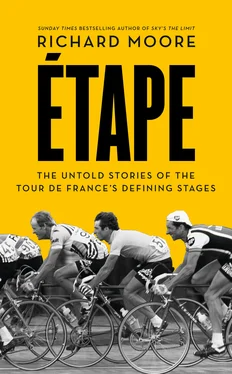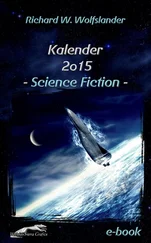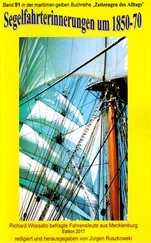Cavendish was a bundle of contradictions. Hot-headed yet analytical. Supremely self-confident and yet, at times, cripplingly self-conscious. Highly sensitive – he would burst into tears and declare his love for his team-mates – and at times coarse and aggressive. Just ask those British fans in Annecy. Blessed with intelligence, but sometimes unable – to his own frustration – to express himself as he would like.
He worried about his Scouse-sounding Isle of Man accent; about how people would judge him. ‘Although I talk like an idiot, I’m not really a fool, like,’ he tells me. Then there was the question of his athletic ability: were his gifts of the body or mind? As a teenager, Cavendish famously ‘failed’ the lab test designed by the British Cycling Academy to weed out those who didn’t have the physiology to make it as a professional; he was given a reprieve, and went on to become not just a decent rider, but one of the greatest. Whatever his physical gifts, one thing was certain: his desire. Cavendish didn’t seem to want success; he needed it. And he had decided, long ago, that he would have it.
There was something else. His ability to analyse what happened in the frenetic closing kilometres and metres of a stage of the Tour de France was uncanny, even a little spooky. It was as though Cavendish had been watching the action unfold not from ground level, but from the air; as if he had access to the TV camera in the helicopter hovering overhead. Call it spatial awareness, or peripheral vision; whatever it was, Cavendish seemed able, invariably, not only to be in the right place, but to know what was happening around and behind him: where riders or teams were moving up fast, or slowing down, or switching; and adjusting his position accordingly to emerge from the mêlée and throw his arms in the air in victory. (The peloton might look organised and fluid, even serene at times. It’s not. And in the final kilometres, it’s chaos. A neo-pro, Joe Dombrowski, sums it up best: ‘People don’t realise how argy-bargy it is. When you watch it on TV, it looks like everybody just nicely rides together and occasionally there’s a crash. But it’s a constant fight for position.’)
Road racing was memorably described by the American journalist Owen Mulholland as ‘chess at 150 heartbeats a minute’. In the bunch sprints, it is chess at 200 heartbeats a minute. Coincidentally, chess is something Cavendish plays. But speed chess. ‘Ten seconds a move. You can’t think, you just have to move.’
The 2008 Tour offered a glimpse of Cavendish’s other weapon, besides his lightning speed, his bike-handling and analytical and positioning skills. His team, Columbia-High Road, formed a lead-out the likes of which the sport had seldom seen. It was a team of strong riders but built around their young sprinter. Few teams are so assured in their focus. Their confidence in him could be seen in the way they rode. The cockiness, the swagger: it seemed that his team bought into this, and fed off it, reflecting their leader’s confidence, and reinforcing it.
* * *
I meet Cavendish in the deserted coastal town of Calpe in southern Spain, in the bar of an out-of-season hotel. It’s early January. It is a pretty bleak setting. And Cavendish is cagey and monosyllabic when asked about recent controversies – there are always recent controversies with Cavendish – and immediate plans. But ask him to discuss his best ever stage win in the Tour de France and he is tranformed. He sits upright. His eyes – framed by long, cow-like eyelashes – widen and sparkle. He uses his hands to speak. And he recites what happened as though he was reading from the road book, recalling every corner, every hill, every pothole.
But first, he has to settle on which stage win is his ‘greatest’. He thinks aloud. There are some contenders. Stage eighteen in 2012, from Blagnac to Brive-la-Gaillarde, three days from Paris, is one. ‘It was a fucking hard day. Block headwind, 230k, and it wasn’t flat, it was heavy roads.’ It was doubly – or triply, or quadruply – hard because he felt he was going against the orders of his team, Team Sky, who led the race with Bradley Wiggins. The team meeting that morning had been confused: Sean Yates, the director, told them to take it easy, at which point Cavendish, who had been led to believe they would set it up for him, raised his hand: ‘What about me?’
Wiggins piped up: ‘I’m in favour of riding for Cav,’ and the plan was changed. But Cavendish did not have the support of old; he was feeding off scraps. In the end, in the final kilometres into Brive, it was Wiggins and Edvald Boasson Hagen who helped him, but Cavendish still had an awful lot to do: there were riders up the road in a break, strong riders, and going into the final kilometre it seemed that they would hang on.
‘At 750 metres to go, I did this calculation,’ says Cavendish. ‘I used Edvald to slingshot to the break; I did it in a split second. I knew, if I go now … I timed it perfectly. I didn’t sprint; I got my speed up; into the slipstream; slingshot off. Then [Luca] Paolini was there; I slingshotted off him; then there were three more. Then I started sprinting. I was sprinting for a good while, 350 metres, but I had that much energy to spare, because, contrary to popular belief, sprinters aren’t lazy until 200 metres [to go]. The amount of muscle damage you do in a bunch sprint is … You can’t recover from that muscle damage, you know. I hadn’t done much sprinting that Tour. I had fire in my eyes. I saw it and I just went.’
He has fire in his eyes now, as he relives it. His heart might be racing, as it was when he caught and passed the Spaniard, Luis León Sánchez, in the finishing straight in Brive. He settles back in his chair. He lifts a hand to his mouth. His brow furrows: not an unfamiliar sight. It’s difficult to tell if he is still thinking or if he is allowing himself to become pissed off, again, as he reflects on his 2012 Tour with Team Sky, when he was made to feel like a bit-part player: a luxury in a team built around Wiggins.
Then he leans forward again and the furrow vanishes: ‘Nah. That wasn’t the best one. I would say Aubenas.
‘Yeah, Aubenas.’
* * *
‘I wouldn’t even have gone for it, if Bjarne hadn’t come over and said that,’ Cavendish says.
Even after his conversation with Riis, he didn’t feel confident when he went back to the road book and studied the profile for stage nineteen. Yet he also concluded that he might never have such a good chance of winning such a tough stage. He was in the midst of his greatest season. He won thirteen times before the Tour even started, including his first ‘Monument’, the Milan–San Remo classic, in late March. That, too, had included two tough climbs towards the end, the Cipressa and Poggio. Then he had won three stages of the Tour of Italy. When it came to the Tour, he won stages two, three, ten and eleven.
Stage three to La Grande-Motte had, in some ways, been the most impressive. It was a different kind of Cavendish win. In the Camargue, where the huge plains south of Arles stretch to the Mediterranean, his team had a plan. This desert-flat but marshy expanse, where white horses gallop through the long reeds, is notorious for the strong wind that blows off the sea. When it comes from the side, as it usually does, it wreaks havoc, causing the peloton to split into echelons – especially if a team is driving at the front.
Cavendish’s team had two people, sprint coach Erik Zabel and team owner Bob Stapleton, riding the course ahead of the race. From the Camargue they reported that when the road turned sharply, with 31km to go, they would suddenly be hit by a crosswind. Just before that turn, Cavendish and his team-mates massed at the front; then they rode hard, in formation, as they came out of the bend. With the wind coming from the left, they hugged the right gutter: the other riders, each one scrabbling for shelter behind the rider in front, stretched in a line behind them, and snapped. Twenty-nine riders raced clear, including six of Cavendish’s team-mates. The sprint victory in the hideous, garish Mediterranean resort was a formality.
Читать дальше












